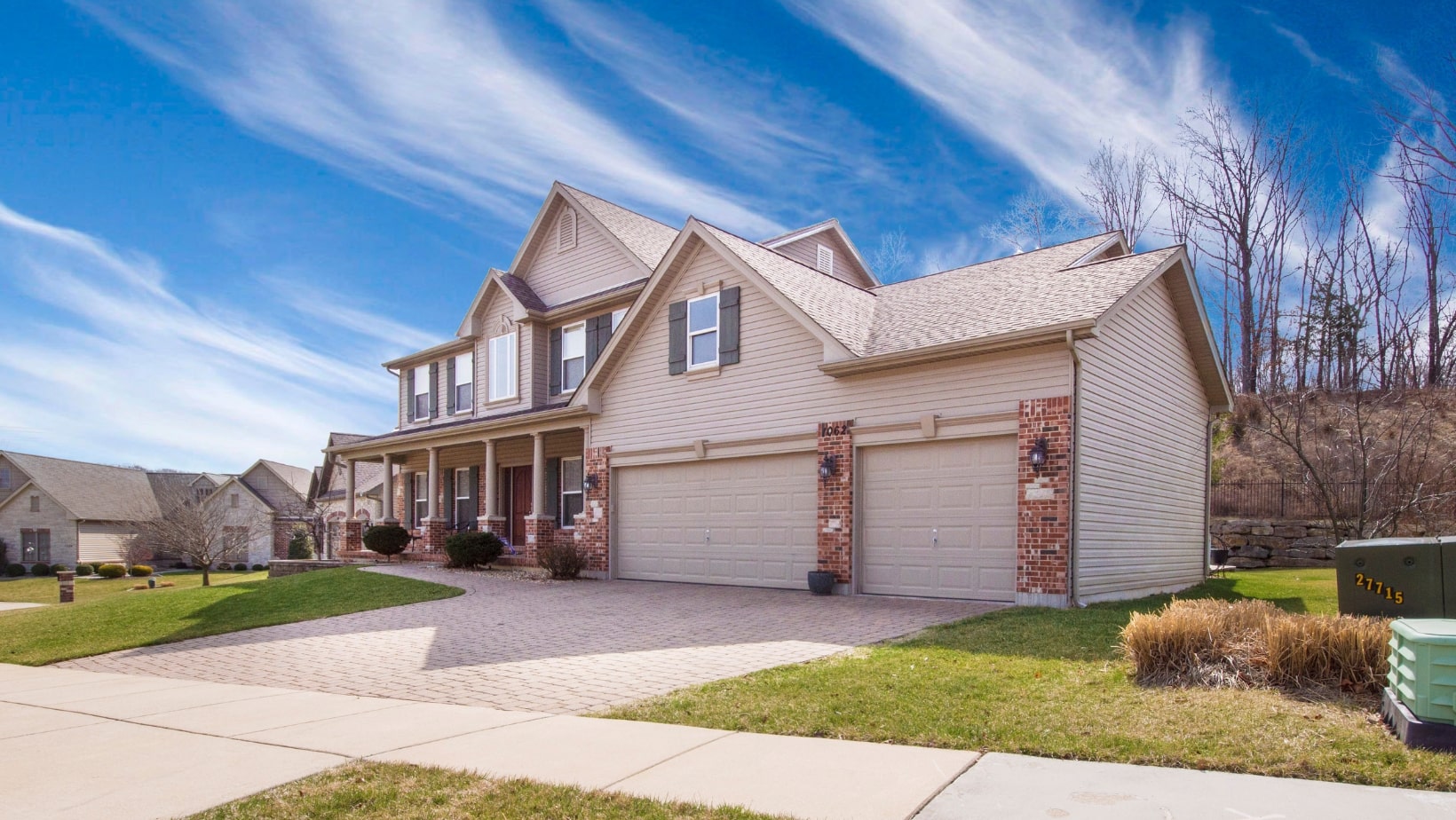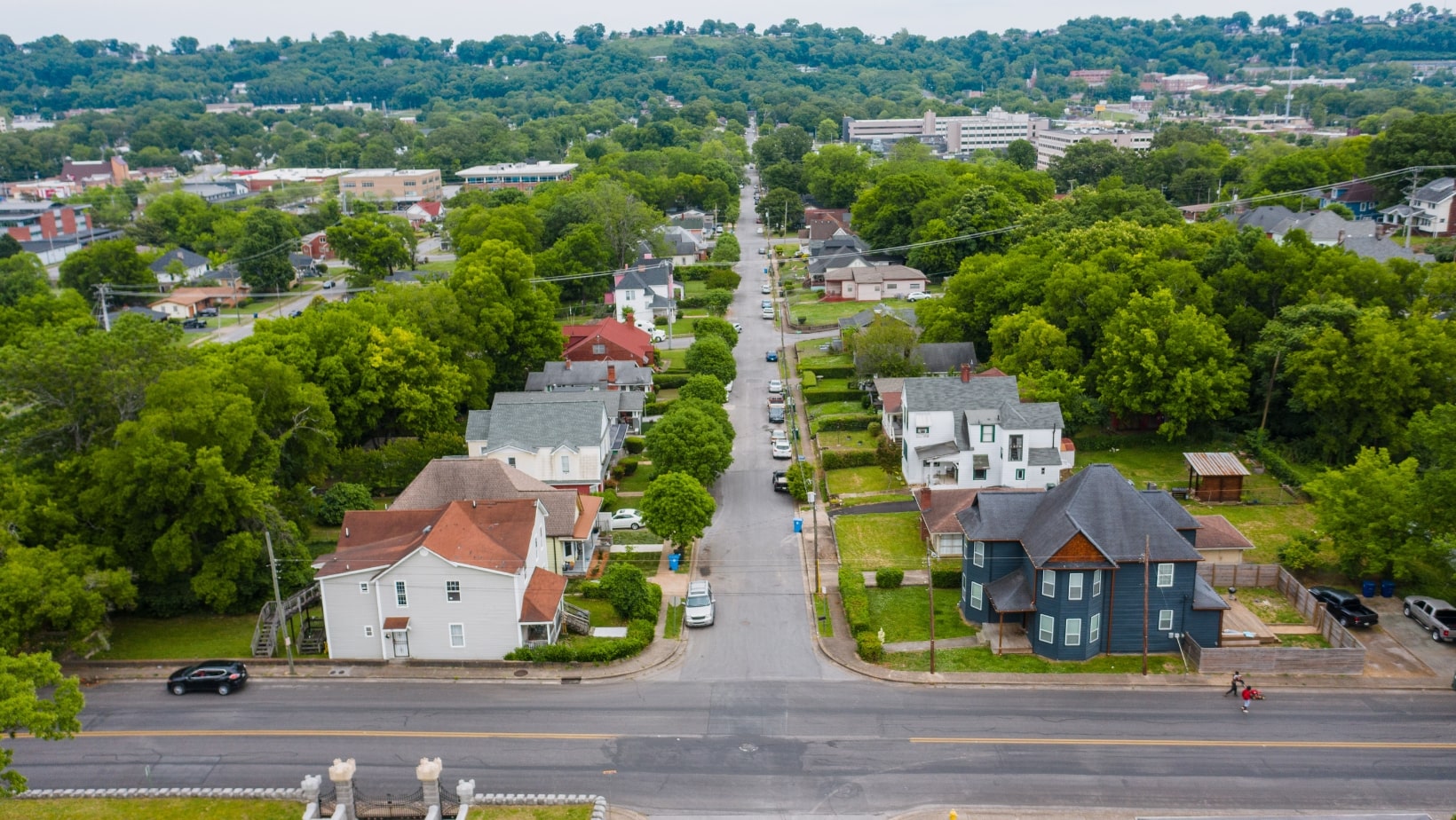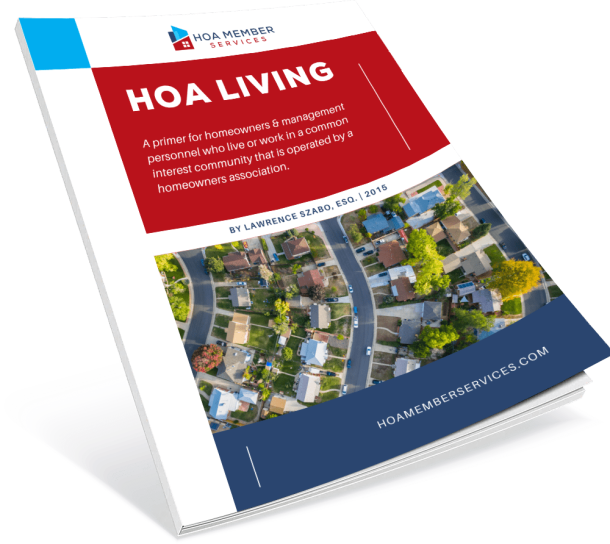Have you ever been super excited about buying your dream home, only to be left overwhelmed by a barrage of dues? I know — homeownership comes with a never-ending list of fees, leaving you scratching your head.
These pesky charges can significantly impact your monthly budget and the overall value of your home. So, if you’ve ever wondered whether your HOA fees are included in your mortgage, you’re not alone.
It’s a common question that can make a big difference in how you manage your finances. So, are HOA fees included in your mortgage? No, HOA fees usually aren’t included in your mortgage, but there’s more to the story.
Don’t worry; we’ve got all the details you need to understand why this is the case. In this article, we’ll break down the relationship between HOA dues and mortgages, helping you navigate your financial planning with ease. So let’s get started.

What Are HOA Fees?
When you buy a home in a community with a Homeowners Association (HOA), you’re signing up for more than just a place to live – you’re joining a community. Part of this membership includes paying HOA fees.
But what exactly are these fees, and what do they cover? Let’s dive into the details and make sense of it all.
HOA dues, or Homeowners Association dues, are mandatory annual or monthly payments made by homeowners living in an HOA community. These fees are like a collective piggy bank, ensuring the neighborhood stays beautiful and functional to keep property values high.
Think of them as an investment in the quality of your living environment, ensuring everything from the flowers in the common garden to the roof of the clubhouse stays in tip-top shape.
What Do HOA Fees Cover?
So, where does your money go? Here’s a breakdown of the common HOA expenses that your fees typically cover:
- Maintenance: This includes everything from lawn maintenance in common areas to fixing the roofs and exterior walls of buildings in condo communities.
- Amenities: Fancy a morning swim or a workout in the gym? You pay HOA fees to access community amenities like swimming pools, fitness centers, clubhouses, parks, and tennis courts.
- Security: Many HOA communities invest in security measures to keep residents safe. This can range from gated entries and security cameras to hiring security personnel.
- Utilities: In some communities, your HOA fees might cover water for irrigation, trash collection, electricity for street lighting, heating for shared buildings, or even cable TV.
- Insurance: HOAs usually have insurance for common property and liability. This means if something goes wrong in a shared area, like a clubhouse or a pool, the insurance can help cover the unexpected maintenance costs.
Factors Influencing the Amount of HOA Dues
Now, here’s the thing — your friend’s fees might be different from yours. But why do the dues vary so much from one HOA community to another?
Here are several factors that influence the amount you’ll pay:
- Location: If you’re in a prime urban area or a luxurious neighborhood, expect higher fees. These places often have more amenities and higher maintenance costs.
- Property Type: Living in a condo association or townhome? Your fees might be higher because the HOA often handles more maintenance tasks, like exterior repairs and roof upkeep.Single-family homes might have lower fees since individual homeowners handle more maintenance themselves.
- Amenities: Homeowners associations with top-tier neighborhood amenities like golf courses, spas, or high-end gyms naturally have higher fees. The more attractive amenities, the more you pay.
- Community Size: In smaller communities, the costs are spread among fewer homeowners, which can mean higher individual fees. Larger communities often have more homeowners to share the load, which can lower the cost per household.

What Are Mortgage Payments?
The term might sound a bit confusing, so let’s clear up what an HOA mortgage is. Your mortgage is the loan you take out to buy your home. Think of it as the car you’ve chosen for this journey (the home-buying process).
It’s what gets you from point A to point B — or, in this case, from dreaming about a home to actually owning one. Now, the HOA is like the toll booths along your route, ensuring the streets are clean, the gardens are trimmed, and the amenities are top-notch.
HOA fees are what you pay for this upkeep, but they’re not part of your car payment (your mortgage payment). Think of them as additional charges for maintaining the smoothness and beauty of your drive.
So, while both costs are part of your monthly housing expenses, they’re generally not bundled together.
What’s Included in a Monthly Mortgage Payment?
Now that you know the meaning of HOA mortgage, let’s break down what your monthly mortgage payment typically includes. Well, it’s not just a single, straightforward payment. Instead, it’s a combination of four key components.
You might hear people refer to it as PITI – not the pitiful kind, but an acronym that stands for Principal, Interest, Taxes, and Insurance. Each part plays a crucial role in ensuring you’re steadily paying off your home while also covering necessary costs.
Every month, your mortgage payment is divvied up among these four components:
- Principal: This is the chunk of your payment that goes toward paying down the loan amount you borrowed. Think of it as chipping away at the mountain of debt to own more and more of your home outright.
- Interest: This part goes to the lender as the cost of borrowing money. It’s calculated as a percentage of the remaining principal. In the early years of your mortgage, you’ll pay more interest and less principal, but this shifts over time.
- Taxes: These are your property taxes. Instead of paying them in one big sum every year, your lender collects a bit each month and puts it into an escrow account. When tax time comes, the lender pays the taxes on your behalf.
- Insurance: Homeowners insurance is crucial because it protects your home from disasters like fire, theft, or storms. Like taxes, this is usually collected monthly and held in escrow until the bill is due.
So, when you see that mortgage bill next time, know that it’s covering the essential costs of owning your home. Meanwhile, the HOA fees ensure your neighborhood remains a place you’re proud to call home and are not a component of your mortgage payments.
How Are HOA Fees Billed and Paid?
Understanding how HOA fees are billed and paid can save you a lot of stress and help you avoid any surprises. Let’s break it down into simple, everyday terms so you know exactly what to expect and how to manage these fees without a hitch.
How HOA Fees Are Typically Billed
HOA fees are usually billed on a monthly, quarterly, or annual basis. The frequency varies depending on the association’s policies, so be sure to check your HOA’s schedule.
Every month (or every few months), like clockwork, you get a bill reminding you it’s time to contribute to the upkeep of your community. This regular billing helps cover the costs of community maintenance and amenities.
It’s like paying your house’s utility bills, but instead of just electricity or water, you pay fees to make your neighborhood a great place to live in.
Methods of Payment
So how are HOA fees paid? Well, it doesn’t necessarily have to be a hassle; paying your HOA dues can be as easy as paying for your favorite streaming service.
Most homeowners associations provide several convenient payment methods to handle this. Some HOAs require the fees to be paid directly.
Direct billing is kind of like paying your credit card bill. The HOA board might send a direct invoice, which you can pay manually. This might mean writing a check or making an online transfer.
Alternatively, to make life even simpler, automatic payments can be set up, ensuring you never miss a due date. Many HOAs offer electronic payments, where the fees are deducted from your bank account without you having to lift a finger.
This method is like putting your payments on autopilot, freeing you from the hassle of remembering deadlines. This can be a lifesaver for those who prefer not to think about it. Set it up once, and your bank handles the rest, just like your Netflix subscription.

Consequences of Non-payment
Now, what if life gets busy and you miss a payment? It happens, right? So let’s address the elephant in the room — what happens if you don’t pay your HOA fees?
Missing a payment isn’t just a small oversight — it can ripple into significant consequences. Don’t just expect a stern letter; the repercussions can be pretty serious and escalate quickly.
- Fines: If you don’t pay on time, you might first face penalties and late fees which can add up real quick and can become a headache.
- Lien: But the story doesn’t end there. In most severe cases, the HOA can place a lien on your property if you continue to miss payments. It’s a legal claim against your home, which can complicate things if you ever want to sell or refinance.
- Foreclosure: In the worst-case scenario, continued non-payment could even lead to foreclosure. It’s a scary thought, but staying informed and setting up easy payment methods can help you avoid these pitfalls.
Are HOA Fees Ever Included in Mortgage Payments?
So, are HOA fees generally included in mortgage payments? No, they’re usually separate. But why is that? Think about it this way: your mortgage payment is like paying off a loan for your house. It covers the principal amount you borrowed, plus the interest.
HOA fees, on the other hand, are what you pay to the homeowner association for taking care of the neighborhood. This includes things like maintaining the pool, landscaping, and keeping the community areas nice and clean.
Since these two expenses cover different things and are managed by different entities, they’re typically kept separate. However, there are some exceptions where HOA fees might be included in your mortgage payments.
When HOA Fees Might Be Included in Mortgage Payments?
So, while it’s not the norm to have HOA fees included in your mortgage payments, there are some rare situations where it can happen. Let’s dive into those:
New Developments
In some brand-new housing developments, particularly those designed with convenience in mind, HOA fees might be included in your mortgage payment. These communities aim to simplify the home-buying process by rolling everything into one neat package.
It’s a one-stop payment solution — everything is taken care of, so you don’t have to worry about multiple payments.
All-Inclusive Housing Developments
Some high-end or luxury housing communities offer an all-inclusive deal where HOA fees are wrapped up with your mortgage. These communities pride themselves on offering a hassle-free living experience.
All you do is write one check each month and everything from your mortgage to your community maintenance is covered. It’s a level of convenience that can be very appealing, especially for those with busy lifestyles.
Lender Arrangements Through Escrow
There are instances where lenders might allow you to include HOA fees in your monthly payments through an escrow account. In this setup, your lender collects the HOA fees along with your mortgage payment and pays the HOA on your behalf.
This can be a huge relief because it means fewer bills for you to handle directly, which is a convenient way to ensure you never miss an HOA payment. However, it’s not a standard practice and depends largely on the lender’s policies.
So, if you’re someone who likes the idea of a single, simplified payment, it’s worth discussing this options with your lender or checking if the community you’re interested in offers such arrangements.
The Role of Escrow Accounts
When it comes to mortgage payments, escrow accounts play a pivotal role in ensuring that your property taxes and insurance premiums are paid on time. But what exactly is an escrow account, and how does it function? Let’s break it down.
An escrow account is a dedicated financial buffer set up by your mortgage lender. Here’s how it works: every month, a portion of your mortgage payment is set aside in this special account.
When it’s time to pay your property taxes or renew your homeowners’ insurance, your lender dips into this account and pays those bills on your behalf.
This means you won’t have to scramble to gather a large sum of money once or twice a year — it’s already taken care of, gradually and painlessly. The lender takes on the responsibility of paying them on your behalf.
Think of it as a cushion against financial surprises. Instead of facing a hefty property tax bill out of the blue, you’re consistently contributing to it in manageable chunks.

Are HOA Fees Included in Escrow?
If you’re living in a community with a homeowners association, you know these fees can feel like an extra burden on top of your mortgage. It might seem logical to lump them into your escrow account, right?
That way, everything is neat and tidy, and you don’t have to worry about juggling multiple bills; it can make life a whole lot easier. But here’s where things get interesting: while escrow accounts typically cover property taxes and insurance, HOA fees aren’t always included.
Most lenders focus on the big-ticket items essential for homeownership. However, some lenders do offer the option to include HOA fees in your escrow. It’s not a common practice, but it’s worth checking the fine print or having a chat with your lender directly.
Imagine the peace of mind knowing all your housing costs are bundled into one simple monthly payment.
Pros and Cons of Including HOA Fees in Escrow
Before you rush to your lender asking to add HOA fees to your escrow, let’s think this through.
Pros:
- Convenience: Consolidating all housing-related expenses into one payment simplifies your financial management.
- Reduced Risk of Missing Payments: Fewer payments to track means less chance of forgetting a due date.
- Prevents Trouble: Ensures timely payment of HOA fees, avoiding late fees and potential disputes with your HOA.
- Simplified Budgeting: A clear, all-inclusive picture of your monthly housing costs can make budgeting easier.
Cons:
- Higher Monthly Mortgage Payment: Including HOA fees makes your overall monthly payment appear higher, which can be overwhelming.
- Potential Administrative Fees: Lenders might charge additional fees for managing a more complex escrow account.
- Less Control: Reduces your direct oversight of payment management, as the lender handles the funds.
- Limited Availability: Not all lenders provide the option to include HOA fees in escrow, which might require you to search for a lender that does.
What is the Impact of HOA Fees on Mortgage Qualification?
Buying a home can feel like a thrilling adventure. You’ve found the perfect place, your finances are in order, and you can almost picture yourself settling in. But hold on a second; there’s an often overlooked aspect that could throw a wrench into your plans: HOA fees.
These pesky little payments can have a surprising impact on whether or not you get the green light from your lender. That’s right; it’s not just an extra line item on your monthly budget; it can actually play a significant role in whether you qualify for that dream home.
Let’s dive into the nitty-gritty of how these fees impact your mortgage qualification and what you need to know to stay ahead of the game.
How Lenders View HOA Fees
Here’s where it gets interesting. Lenders are like detectives when it comes to your financial health. When you apply for a mortgage, lenders want to know one main thing: Can you handle this loan?
To figure this out, they calculate something called the debt-to-income (DTI) ratio. This ratio is basically a measure of how much of your income goes toward paying off debts.
So, are HOA fees included in the debt-to-income ratio? Absolutely. When lenders calculate your DTI ratio, they add your monthly HOA fees to your other debts.
The lenders include not only your HOA fees but also credit cards, car loans, and the mortgage in your monthly housing expenses, which means they affect your DTI ratio.
A higher DTI ratio means you’re seen as a bigger risk because more of your income is already spoken for. So, if your HOA fees are high, your DTI ratio goes up, which can make it harder to qualify for a mortgage.
Think of it as a balance scale — on one side, you have your income, and on the other, your debts. The trick is to keep the scale balanced, or better yet, tilted in favor of income.
Example Scenarios
How much does the HOA fee affect mortgage affordability? Let’s break it down with a couple of examples.
- Scenario 1: Imagine you’re buying a condo with an HOA fee of $300 per month. Your monthly income is $5,000, and you already have $1,000 in other debts (like car payments and student loans).When you add the $300 HOA fee, your total monthly debt obligations jump to $1,300. This means your DTI ratio is now 26%.If your lender’s maximum acceptable DTI ratio is 25%, this relatively small HOA fee could be the very thing that stands between you and your mortgage approval.It’s a bit like being ready to board a flight only to be stopped because your bag is just one pound over the weight limit. Frustrating, right?
- Scenario 2: Picture this: you’re torn between two houses that you absolutely love. One has a $150 monthly HOA fee, and the other has none. Without the fee, you might qualify for a $300,000 mortgage.However, with the fee, the lender might only approve you for $270,000. It’s a subtle difference but a crucial one. That $30,000 could mean the difference between getting a home with all the features you want or having to compromise.
Final Thoughts
Navigating the world of homeownership can be a bit tricky, especially when it comes to figuring out if HOA fees are part of your mortgage. But now that we’ve cleared the fog around it, it should be a breeze.
We dove into the nitty-gritty of whether HOA fees are included in your mortgage payments, how they affect your overall housing costs, and what you need to keep in mind when budgeting for a home within an HOA community.
TL;DR? Are HOA fees included in the mortgage? No, they are not; HOA fees are usually separate from your mortgage.
But while HOA fees might not be part of your mortgage, they’re still a key piece of the puzzle when it comes to your total housing expenses. Ignoring them could throw a wrench in your financial plans, so it’s crucial to factor them in from the get-go.

Key Takeaways
- Always include HOA fees in your monthly budget to avoid surprises.
- Check with your lender to understand how HOA fees might impact your loan approval.
- Manage your finances wisely to ensure HOA fees do not jeopardize your mortgage.
Need help figuring out HOA fees and your mortgage? Get support from our expert HOA attorney to ensure you’re making the best financial decisions for your future. Be a member today, and let’s get you on the right track!

